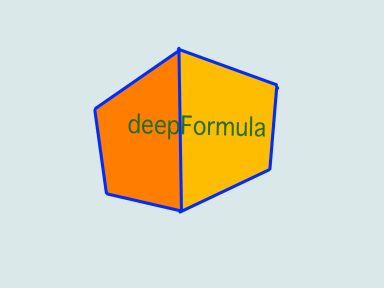Plan & Design Experiments using Intelligent A.I. based Software for generating product formulations.
Autonomous and Integrated

Knowledge Inferred System
Disruptive Innovative Technology
deepFormula is a type of intelligent system that uses knowledge about product formulation to infer the optimal formulation for a given set of requirements. This knowledge is then used to formulate products that meet the requirements and are also commercially viable.
deepFormula is typically used in the food, beverage, and pharmaceutical industries. These industries require a high degree of accuracy and precision in product formulation, as even small changes in the formulation can have a significant impact on the product's taste, texture, and stability.
deepFormula works by first gathering information about the product's requirements. This information can include the desired taste, texture, stability, and cost. Once the requirements are known, deepFormula uses its knowledge of product formulation to infer the optimal formulation.
deepFormula system's knowledge of product formulation is typically represented in a mathematical model. This model can be used to calculate the properties of different formulations, such as their taste, texture, and stability. The model can also be used to predict the impact of changes in the formulation on the product's properties.
deepFormula system's knowledge of product formulation can also be represented in a rule-based system. This system consists of a set of rules that describe how different ingredients interact with each other. The rules can be used to infer the optimal formulation by considering the interactions between the ingredients.
deepFormula is effective in improving the quality and commercial viability of products. It is used to develop new products, to improve existing products, and to reduce the cost of product development.
Here are some of the benefits of using deepFormula to assist in:
- Improving product quality: by developing products that meet the desired taste, texture, and stability. This can improve the overall quality of the product.
- Reduce product development costs: by reducing the cost of product development by mitigating the optimal formulation, which can reduce the number of experiments that need to be conducted.
- Increase commercial viability: by predicting the impact of changes in the formulation on the product's properties. This information can be used to make changes to the formulation that will improve the product's commercial viability.
The challenges for using deepFormula:
- Data collection: provides assistance in collecting data about the product's requirements and the interactions between the ingredients. This data can be difficult to collect, especially for new products.
- Knowledge Acquisition of SME (Subject Matter Expertise): requires machine understandable knowledge representation and codification by building taxonomies and ontologies.
- Model development: requires a mathematical model and / or a rule-based system that represents the knowledge of product formulation. The development of adaptive models that can be complex and evolutionary in time.
- Model validation: The mathematical models or the rule-based system need to be validated. This is done by comparing the predictions of the model to the results of experiments.
Overall, deepFormula has the potential to be a powerful tool for improving the quality and commercial viability of products.

What we do?

Planning
Decide which component ingredients to use by defining the product specifications. Initiate procurement and ordering. Assemble all measuring instruments, calibrate machines. Devise a method and approach.

Modeling
Enter all the data relevant to a formulation project into deepFormula. Instruct deepFormula through control parameters to generate a model that predicts outcome at a desired level of accuracy.

Testing
Using the formulations generated by deepFormula, produce product in lab and benchmark. Use benchmark results to re train the model.
